Every item on this page was hand-picked by a House Beautiful editor. We may earn commission on some of the items you choose to buy.
Minimize Clutter

A key principle of feng shui is that a bedroom should be orderly and free of negative distractions that could disrupt sleep. Keep things light and airy but comfortable and grounded with soft textures, rounded shapes, calming colors, and no excess furnishings. “When designing a feng shui bedroom, the first and foremost step is to clear away clutter and avoid unnecessary items,” says Schumacher.
Decluttering goes hand in hand with another key feng shui principle, which is to avoid storing items under the bed. Chan and Cho both noted that soft items like seasonal clothing and bed linens can be an exception if you have no other place to keep them. Just consider the quality of what is being stored under the bed and in the room, advises Cho, especially if you have trouble sleeping. “If you do have to have storage under the bed, it should be sleep-related items…not anything that is emotionally charged.” She also suggests removing intense reads from your nightstand as they can be too invigorating.
Pick a Sturdy Headboard
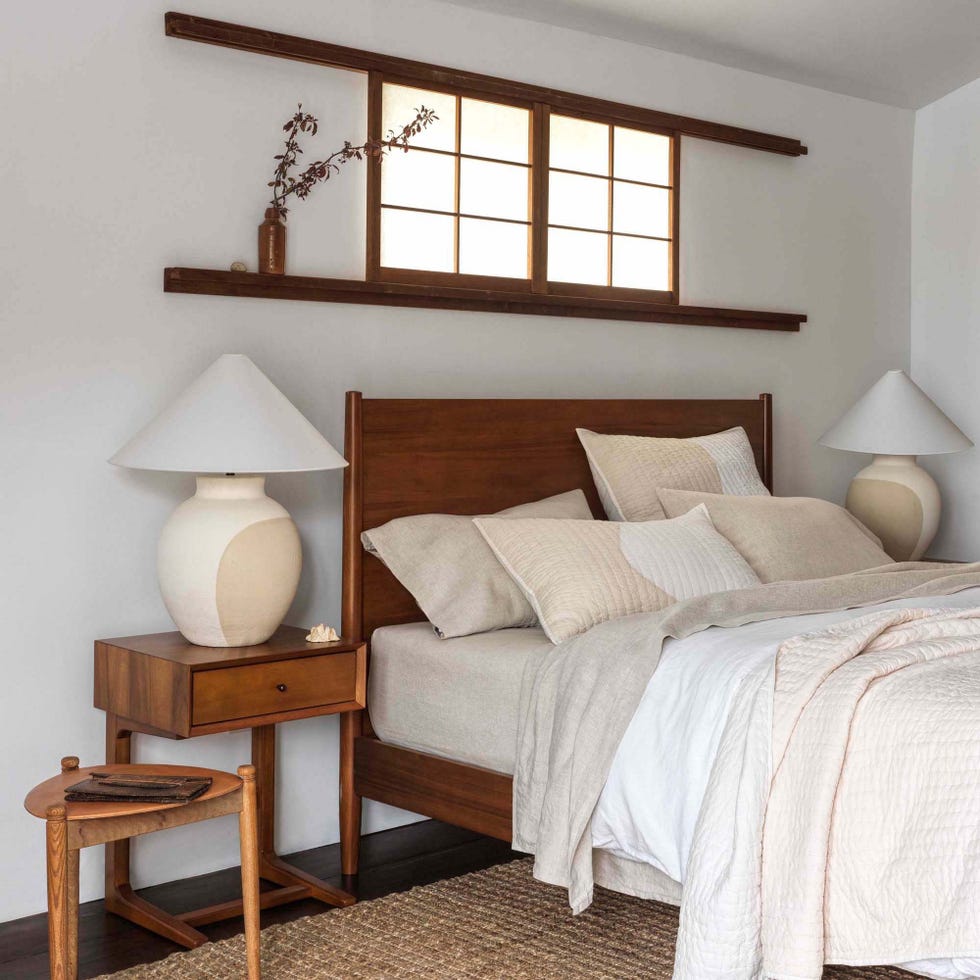
“The commanding position is one of the principal concepts in feng shui,” says Cho. “Ideally you want to set you bed so that you’re diagonal from the door.” Placing yourself in a commanding position allows you to feel secure and safe, even in your most vulnerable state—i.e., sleep. Upholstered or wooden headboards that face the door (more on that below) should be placed on a solid wall, ideally with no windows, so that you don’t feel on edge about a surprise guest. Chan adds that “[a] solid headboard, ideally made of wood and firmly attached to the bed [signifies] a strong and solid relationship.”
Stick to Soft Shapes and Materials
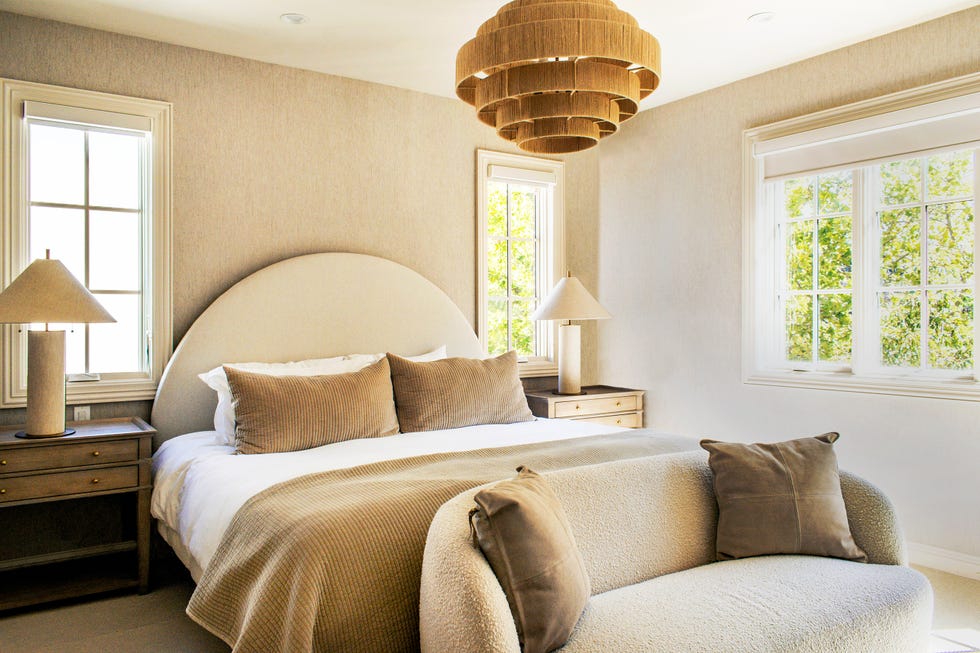
Chan says that soft bedding and rounded shapes “promote harmony and ease.” Anything too harsh and angular goes against the soothing environment you’re trying to create. Schumacher adds that rounded corners allow for smoother traffic flow as well.
Advertisement – Continue Reading Below
Use Dim Lighting
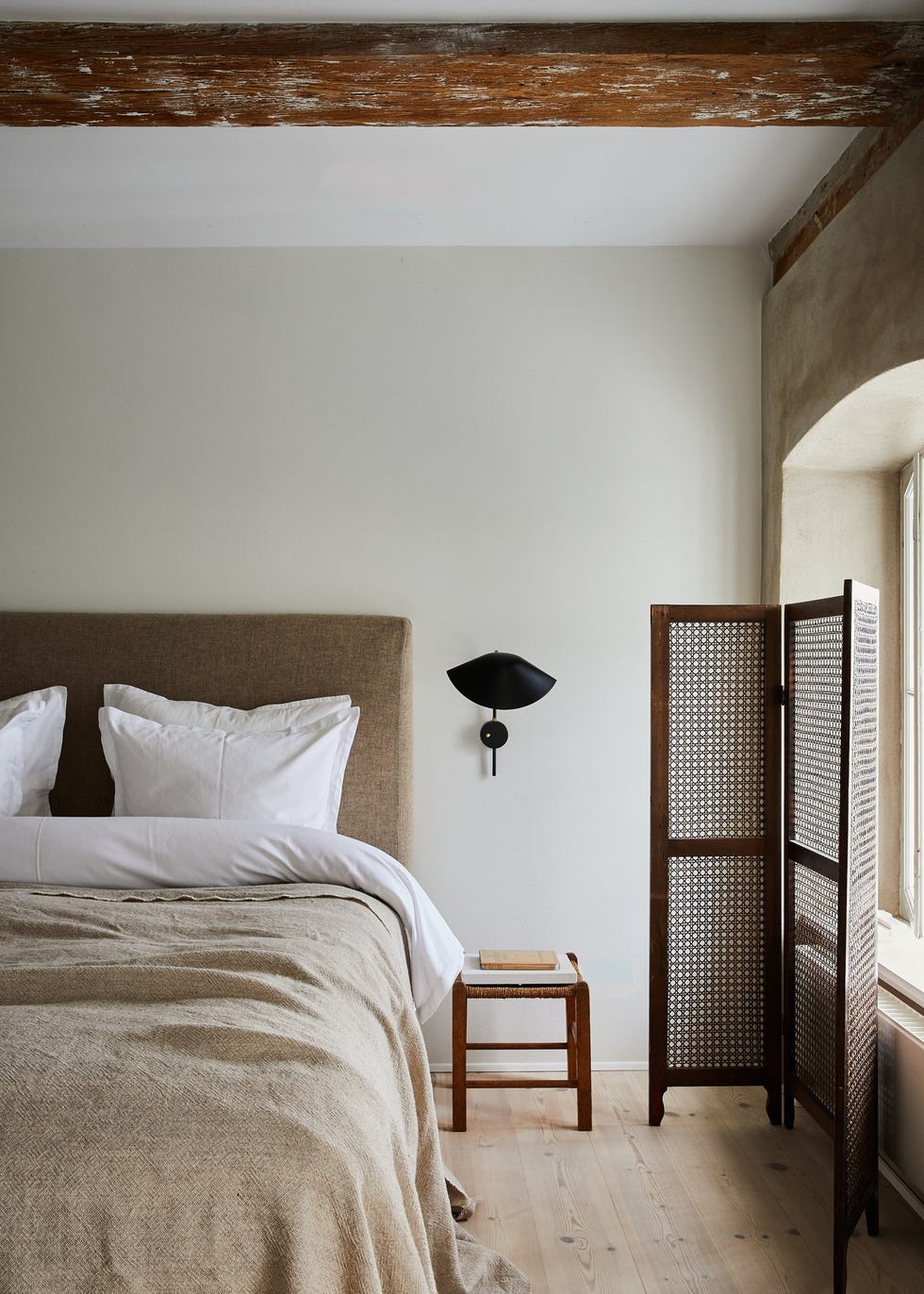
Obviously, the bedroom is a place for sleep. Putting lights on dimmers or using lower wattage bulbs puts you in a restful state of mind. “You want to have the right ambiance for restful sleep and romance,” Chan says. Bright overhead lighting is too stimulating and should be avoided. Blackout curtains may be beneficial to block disruptive external light.
Keep Your Door in View
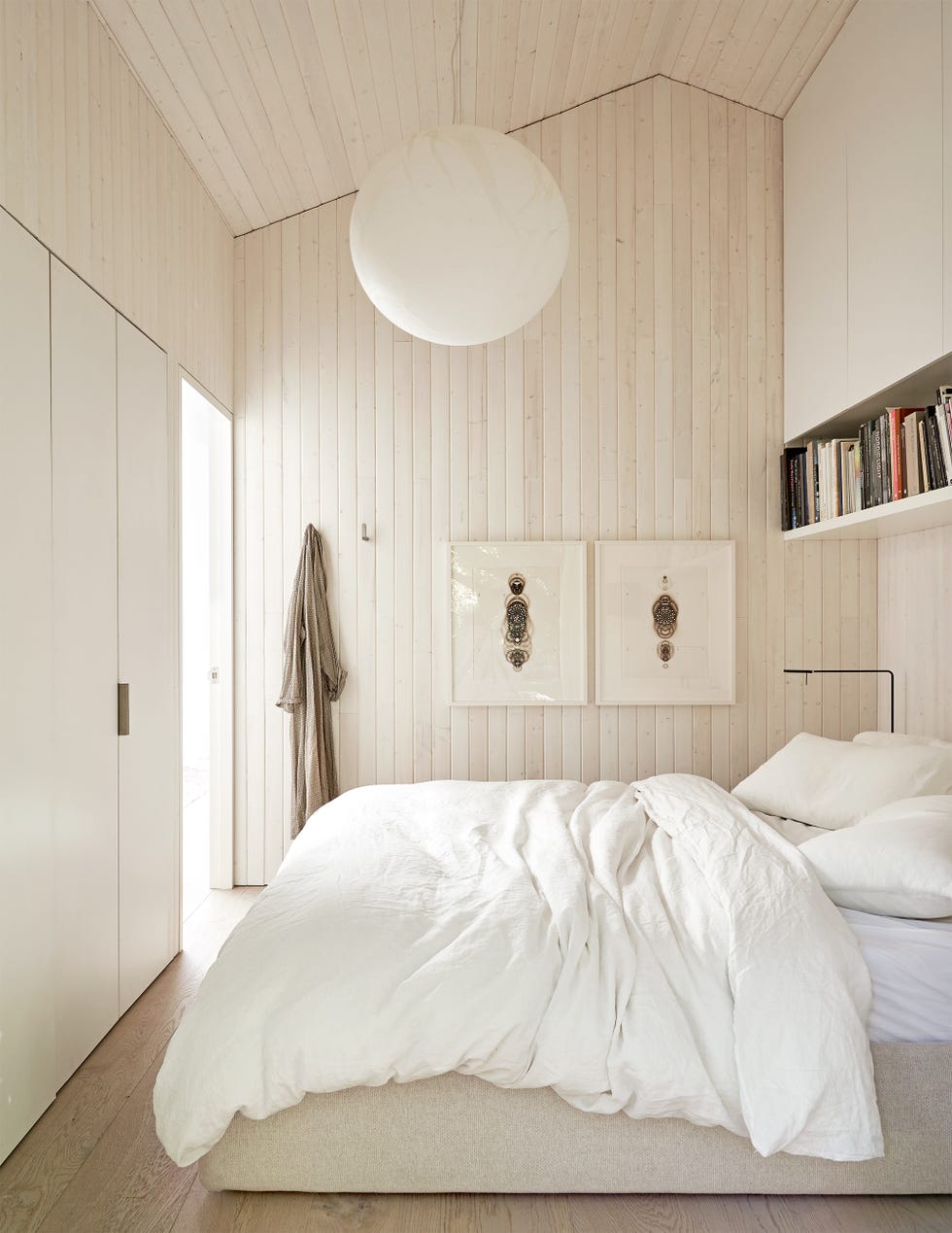
You want to be able to see the door from your bed but not be directly in front of it. In feng shui, a bed directly facing the door is called the “funeral position,” explains Chan, since that’s often how coffins are taken out of rooms.
“Position your bed diagonally from the door, with a solid wall behind you,” says Schumacher. “This may sound silly, but it aligns with our natural instincts. It allows you to see who is entering your private space while lying in bed, adding an extra layer of comfort and peace of mind.”
Bed placement is one of the most critical principles of feng shui, Cho emphasizes. It’s important to have free space on all three sides of the bed for comfort and good energy flow.
Choose a Calming Palette
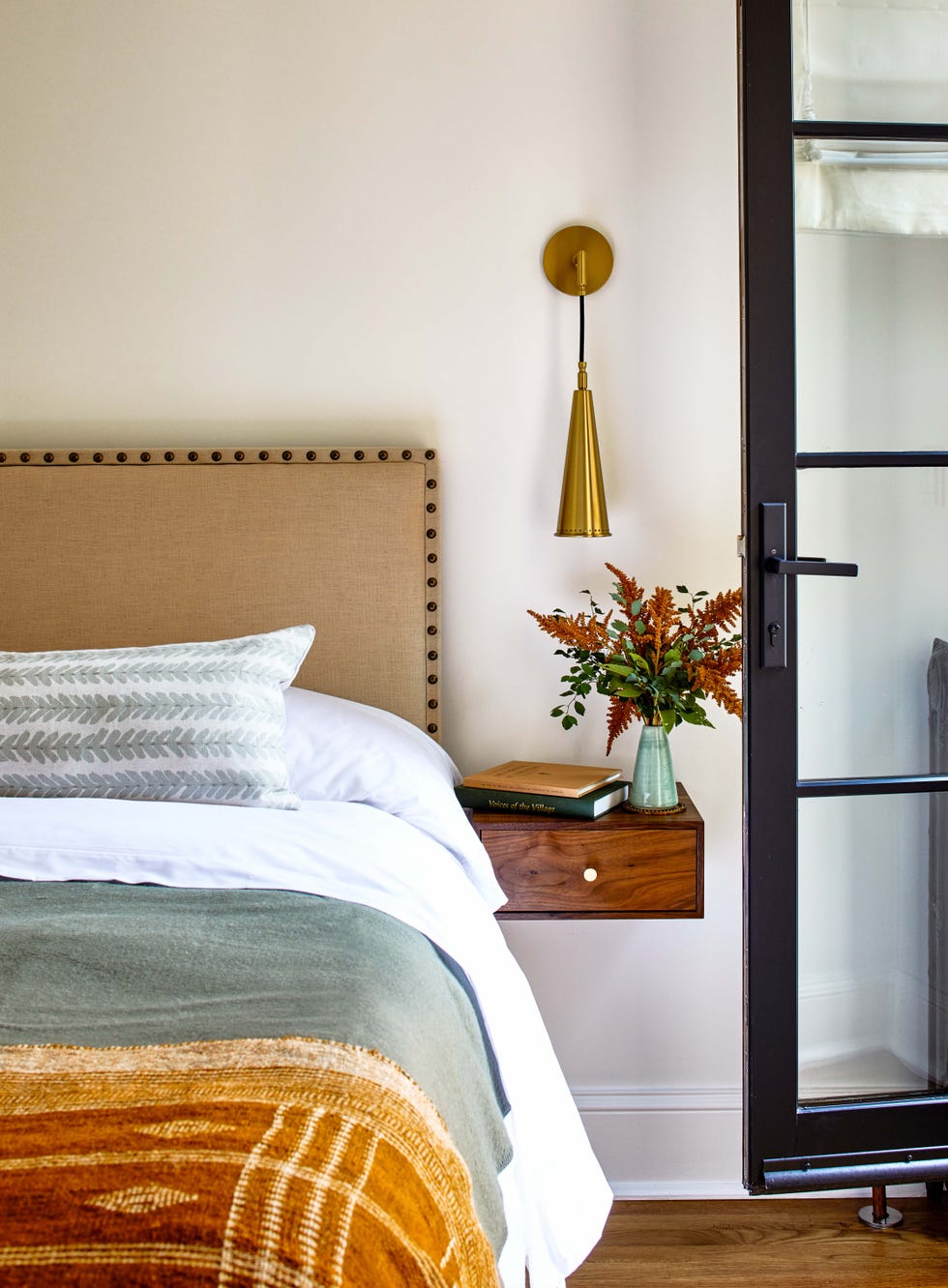
Balancing yin and yang energy is a very important tenant of feng shui. Having the right blend of hard and soft elements keeps the appearance and energy of the room in harmony. “Soft, nature-inspired hues work wonderfully in bedrooms as they create a calm environment. Additionally, using a darker floor with contrasting lighter colors on the walls and ceiling helps to ground you,” Schumacher explains.
Despite what you may think about minimalist style, color is welcome! In fact, feng shui experts cautioned against an all-white color palette as it puts the room out of balance. “If there’s a color you love, don’t hesitate to incorporate it,” Schumacher adds. “The most important aspect of feng shui is to make it a reflection of yourself, promoting positivity.”
Advertisement – Continue Reading Below
Offset Mirrors
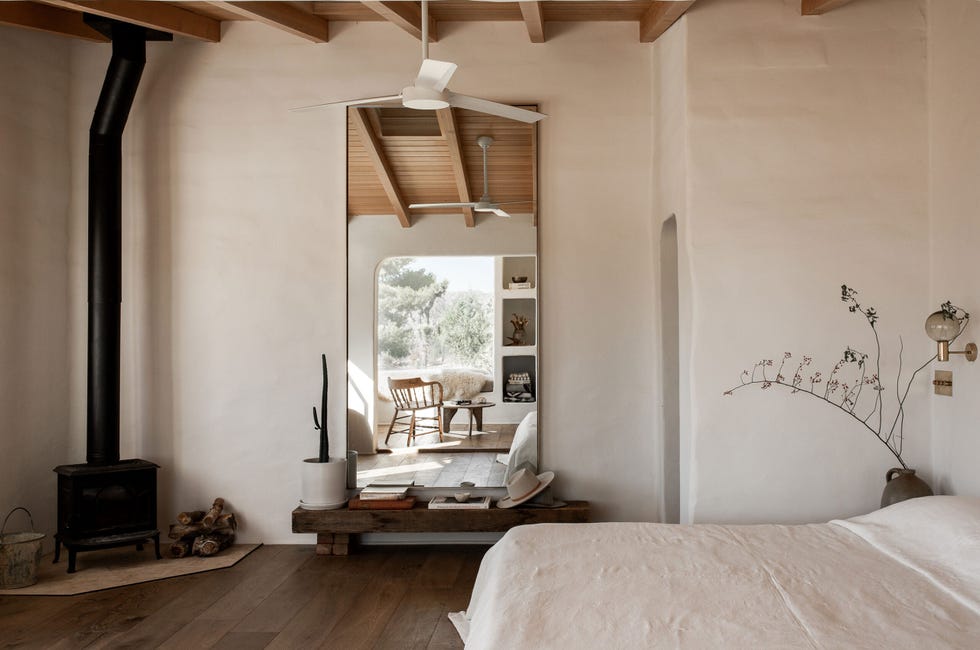
While some experts may caution against using mirrors at all, others, like Chan, suggest positioning the mirror so that it doesn’t directly reflect the bed. Mirrors can disrupt the good, calming energy of your bedroom if they reflect clutter or other “busy” elements of your space, so placement is important.
Avoid Tech
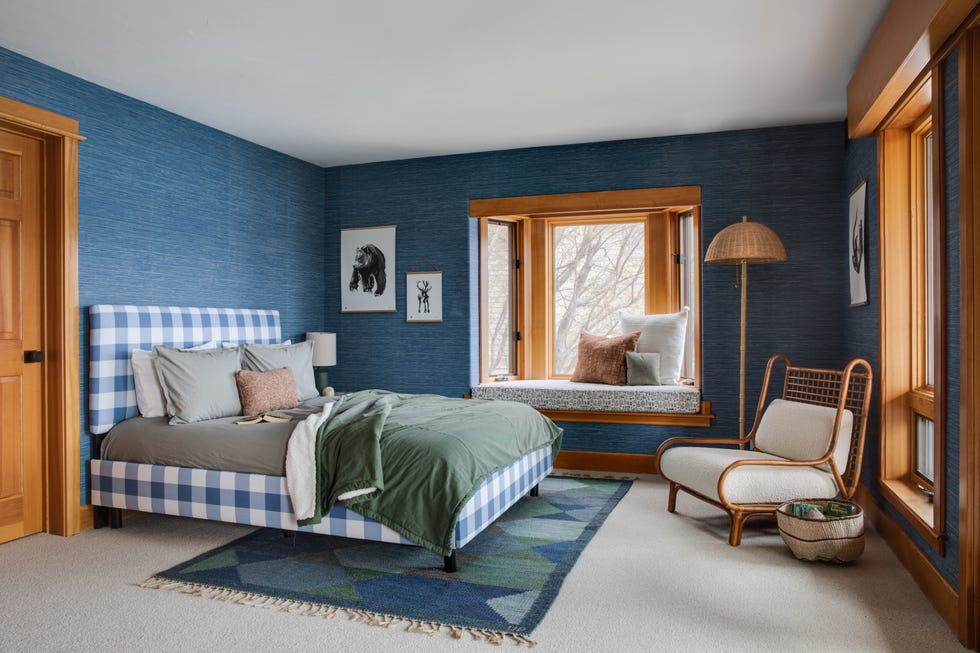
It is widely accepted and recommended by health experts to keep electronics out of the bedroom, and feng shui principles align with this health advice. According to Chan, TV and cell phones bring energizing chi into the bedroom, which is very disruptive to sleep and restoration. Additionally, feng shui experts advise removing work-related items from the bedroom as it should be a space solely reserved for romance and relaxation.
Add a Soft Rug

Start your day on the right foot by landing on a warm, comfortable rug rather than the cold, hard floor. Chan says a soft rug that greets you with comfort in the morning and helps set the tone for your day will likewise help you calm down at night. Rugs also have a grounding effect. “You can use a rug under your bed in a square or rectangular shape to bring in more earth elements to support you and ground you,” says Cho.
Advertisement – Continue Reading Below
Strive for Symmetry

Remember that the purpose of feng shui is to balance the energy and create harmony between you and nature. Using symmetry in your design is one way to achieve this, but it doesn’t have to be matchy matchy, says Cho. Just make sure there’s some kind of complementary arrangement to keep everything in balance. Your nightstands and sconces or lamps should be similar in size and weight.
Hang Your Favorite Art
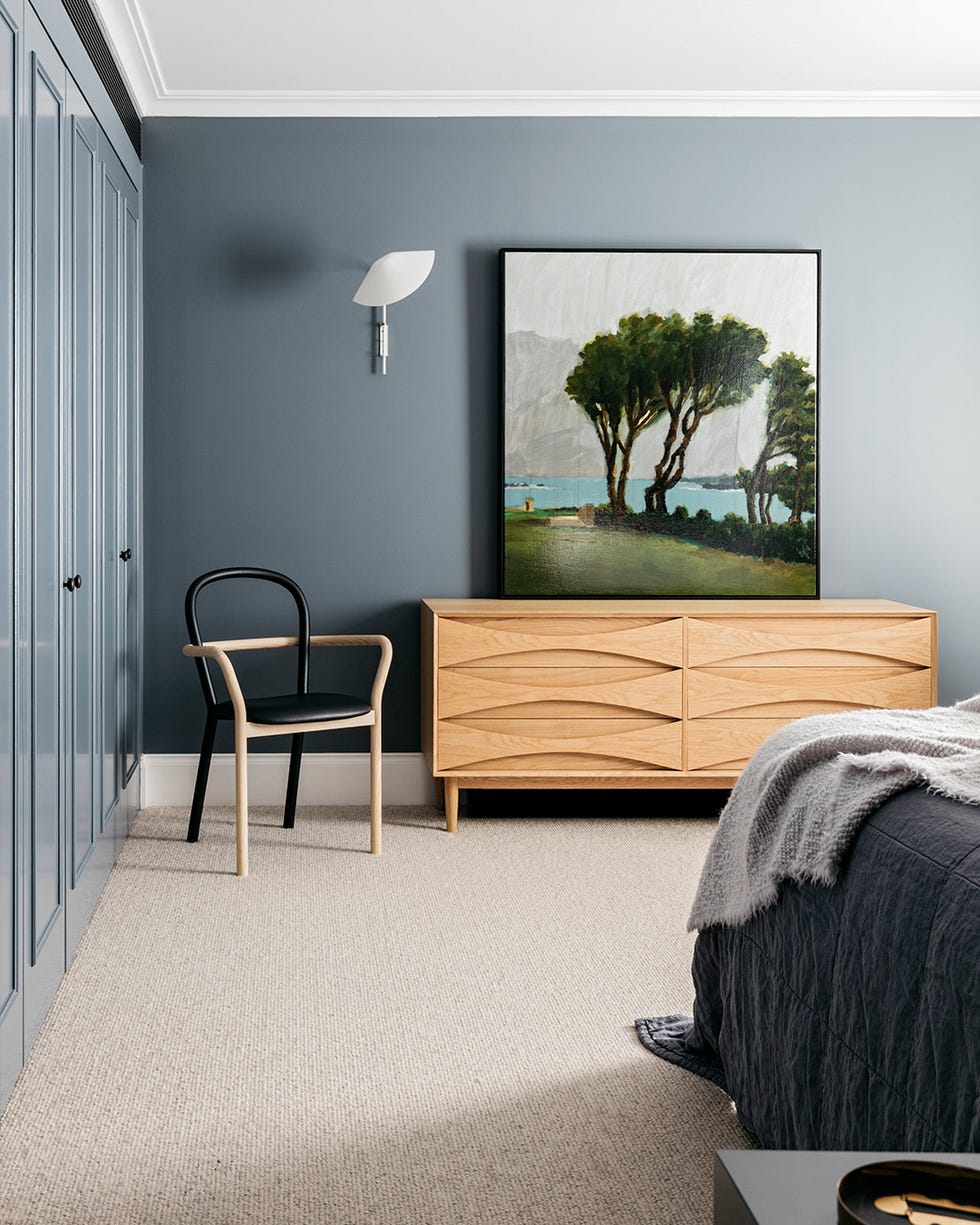
With any design project, the goal should be, first and foremost, to create a welcoming, homey environment that reflects you. Because the bedroom is the most private, personal place in your home, make sure to incorporate pieces that truly make you smile. “Place artwork that you love in front of your bed since it’s the first thing you see when you wake up and the last thing you see when you go to bed, and you want to feel happy and calm,” suggests Chan.
If you decide to adopt feng shui bedroom ideas, keep Schumacher’s words close at heart: “Remember that feng shui in the home is creating harmony between you and your environment. Make intentional decisions that are going to promote positivity for you.”
Watch Next

Advertisement – Continue Reading Below
Advertisement – Continue Reading Below


